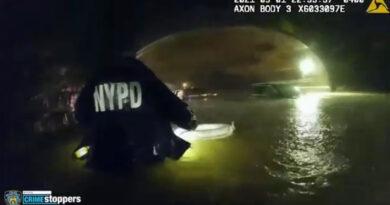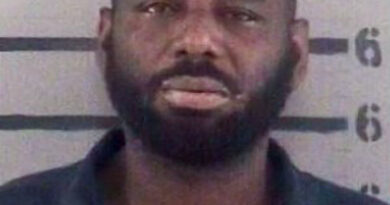CRACKED IT! Surgeons Fix Patient’s Smashed Skull With 3D Printer
A patient with a crushed skull has been saved by surgeons who used a 3D printer to make him a replacement bone for less than GBP 10.
Gokhan Keskinkilic, aged 46, was operated at the Omer Halisdemir University Training and Research Hospital in Nigde, Turkey.
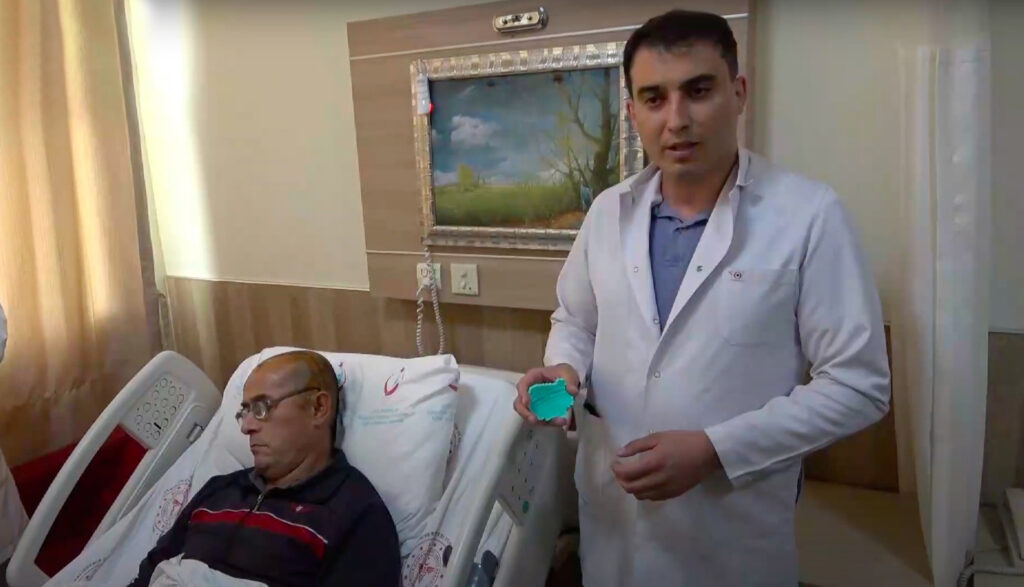
Medics say he was suffering from severe brain bleeding due to head trauma.
Local media reported that Gokhan had arrived at hospital with the left side of his skull collapsing inwards.
Neurosurgeon Dr Ismail Kaya and colleague Dr Huseyin Yakar removed the damaged section of his skull to prevent brain damage through swelling.
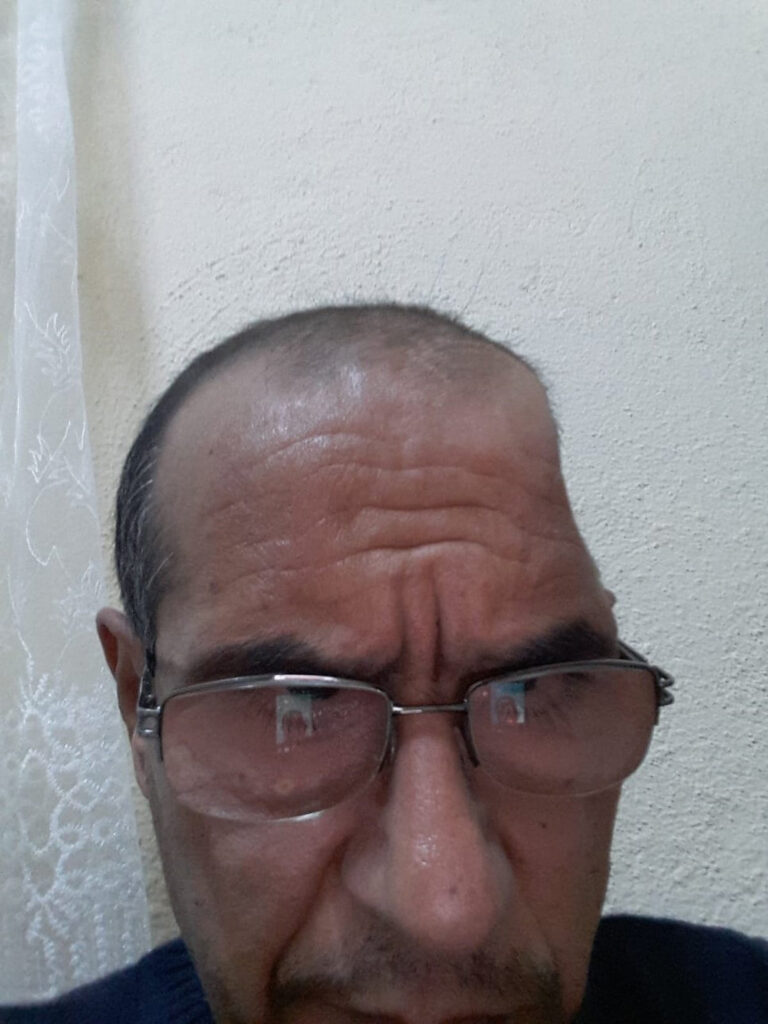
And to save the segment, the surgeons took the damaged skull segment and sewed it into the patient’s abdomen.
But the segment shrunk and surgeons either had to find a substitute or leave the patient with a lopsided skull.
Clinic chief physician Yakap Cetinkaya explained: “In this case, artificial bones are created.
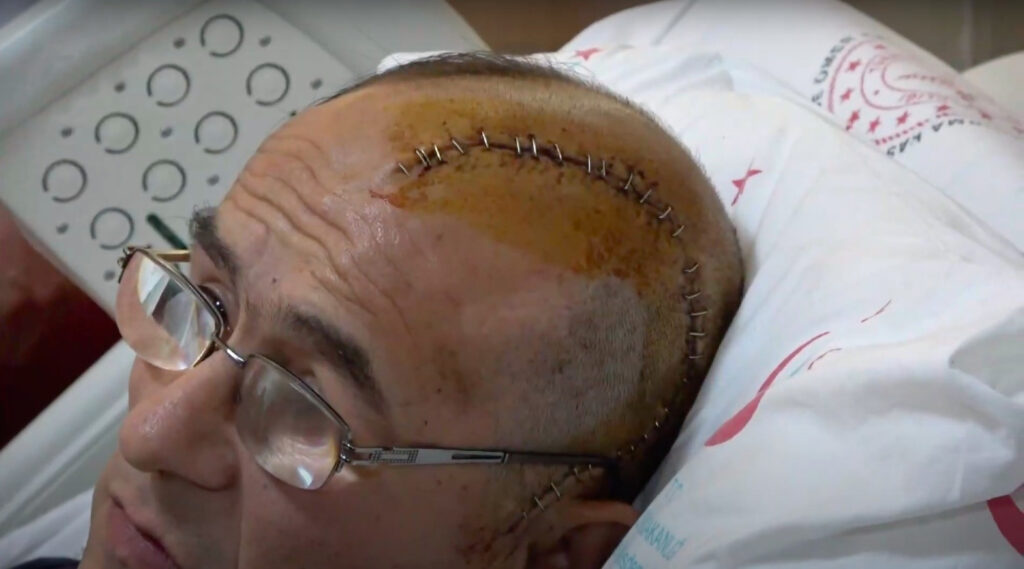
“The methods applied until now were very expensive, materials made of titanium were used.”
But after joining forces with computer engineer Enes Kesen from Kocaeli University they mapped the hole in the patient’s skull and created a new part printed to his exact measurements.
Astonishingly, the implant cost just TRY 200 (approximately GBP 10).
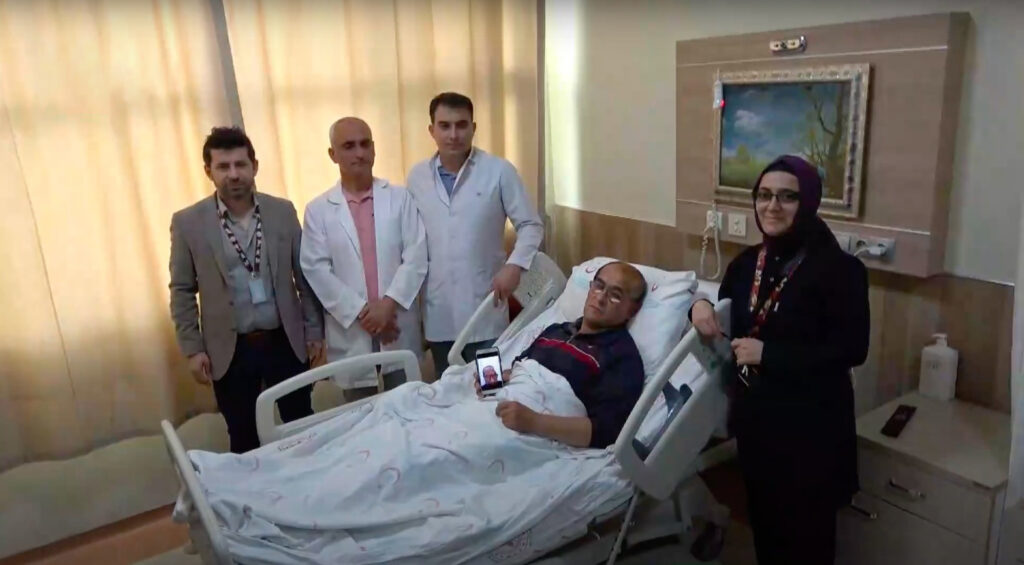
The part was printed from (poly) methyl methacrylate (PMMA), also known as acrylic or acrylic glass because it resembles traditional glass but can be successfully 3D printed.
Finally, surgeons placed the segment into the patient’s skull giving back 46-year-old Gokhan his natural head shape back.
Dr Kaya said: “It was a successful operation!”
He added: “We have done it for a very small amount [of money], at an affordable cost, without any burden on SSI [Social Security Institution].
“The patients did not have any financial loss, there is no difference between their normal bone and this bone.”
Chief physician Cetinkaya said he is very proud of his team and the surgery’s success.
He added: “Our aim is to reduce referrals from our University Hospital as much as possible and to do studies to reduce it.”
Gokhan reported he was recovering well and thanked the doctors for their hard work and innovative efforts.

